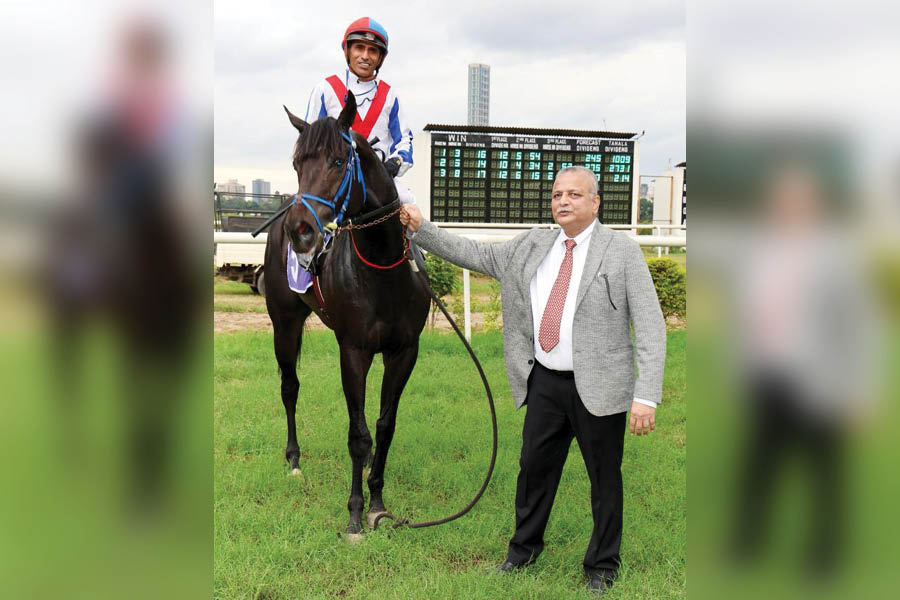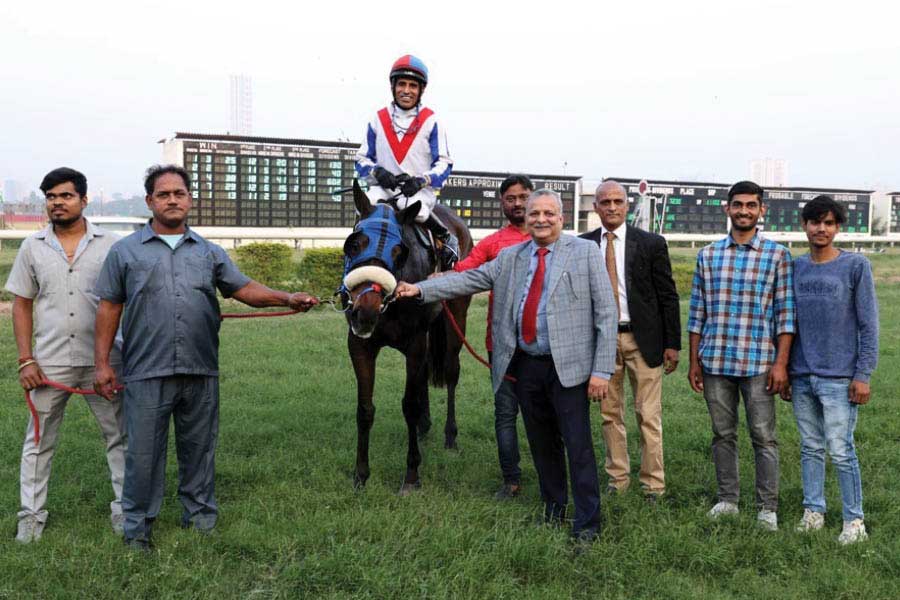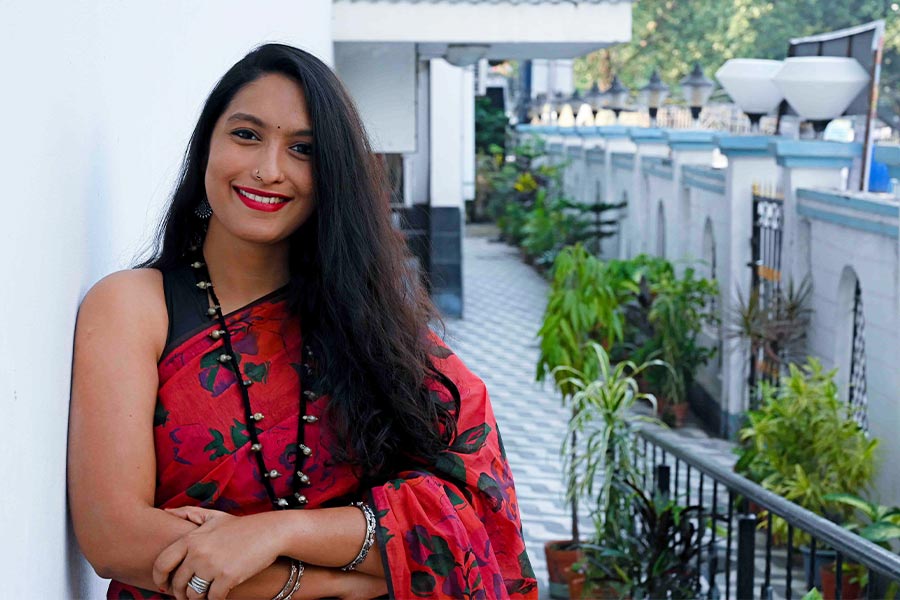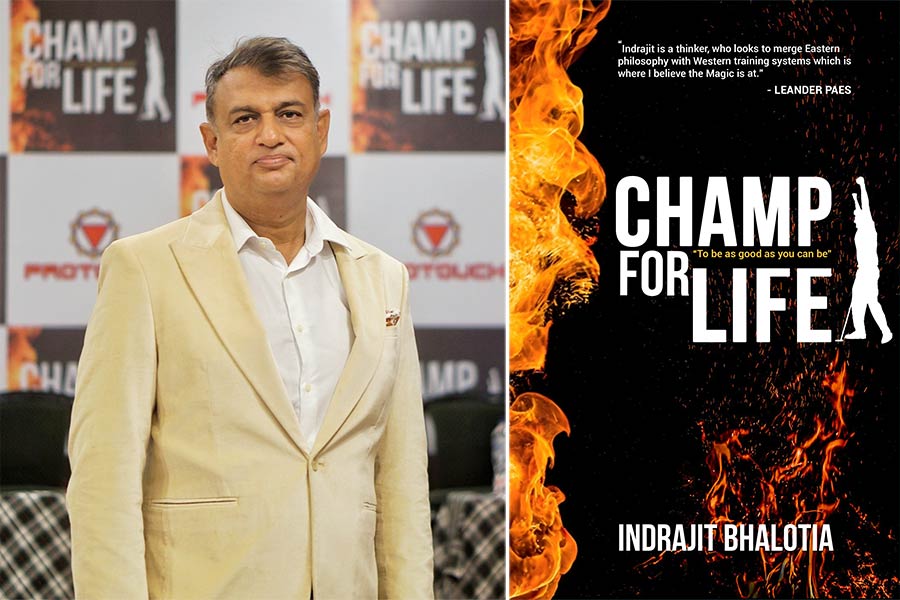Vikram Bachhawat, director of Chisel Crafts and Aakriti Art Gallery, was still in college when he attended the New Year’s derby at Kolkata’s RCTC. The excitement, speed and passion he witnessed at the event captivated him to the extent that he purchased his first horse soon after.
For the past three decades, Vikram’s commitment to owning horses and engaging in racing has persisted as a true passion project. Despite the high expenses and relatively modest returns, his dedication and commitment stem from inherent value in the sport.
My Kolkata explores the realm of horse ownership with Vikram, whose predictions have consistently proven accurate. He attributes his success to diligent study and regular monitoring of the horses’ performance, emphasising that luck plays a minimal role here. Excerpts:
What inspired you to own a horse?
During my final year of college, I attended Derby Day at the racecourse on January 1 with a friend, who owned a few horses. The excitement and the overall ambience captivated me, and that’s when the idea of owning a horse took root. Along with two of my friends — contributing about Rs 20,000 each — we purchased our first horse. Although the exact year escapes my memory, it was either in 1988 or 1989.
How many horses do you currently own, and are they all located in Kolkata?
At present, I own over 30 horses, distributed across various stables in different locations — including Kolkata, Mumbai, Bangalore, Chennai and Mysore.
Tell us about the process of owning a horse…
The process is straightforward and simple. Submit your papers, including ITR, and undergo KYC check. Once approved, you receive a quota based on your finances. Formerly, an interview was conducted, but now it’s simplified. When buying horses, we study catalogues, assess pedigree and progeny performance, shortlist, and get the trainer to check the horse’s fitness and condition, considering various factors like health and suitability.
Owning horses comes with a lot of responsibilities. How do you ensure the well-being and optimal performance of your horses?
Maintenance falls under the trainer’s purview. They regularly update us on the horse’s condition, morning workouts and preferences for races. We decide collaboratively, considering factors like handicaps and entries, before finalising and entering races.

Vikram Bachhawat Vikram Bachhawat
What are some of the challenges that you face as a horse owner?
Various challenges arise, with a significant focus on maintaining the horse’s optimal condition for race day. This involves meticulous attention to its fitness, dietary requirements, its overall readiness and more.
On the flip side, what are the most rewarding aspects?
It’s a rewarding platform for socialising. Rubbing shoulders with influential individuals, such as the Poonawallas, adds a special charm. Sharing the thrill of races, enjoying the overall experience and basking in congratulations when your horse emerges victorious creates a unique feeling of achievement.
From what we hear, owning and maintaining horses needs a significant financial investment. How do you approach the financial aspects of horse ownership?
Owning a horse is like dining at a five-star restaurant; it comes with luxury costs. However, if your horse performs well, you can earn money through races, some of which offer substantial prizes, like the Derby with a prize of about Rs 10 million or more. Your earnings come from performing well in these races, contributing to the financial aspect of ownership.
For individuals wanting to own a horse for the first time, what advice would you offer based on your experiences?
I would advise them to refrain from viewing horse ownership as a form of gambling. Owning a horse can be a source of pleasure, sustained through winning or placing in races. It’s best approached as a hobby, avoiding the unpredictability associated with gambling.
Looking forward, what are your future aspirations and goals as a horse owner this year?
I’d like to win all the big races this year.


